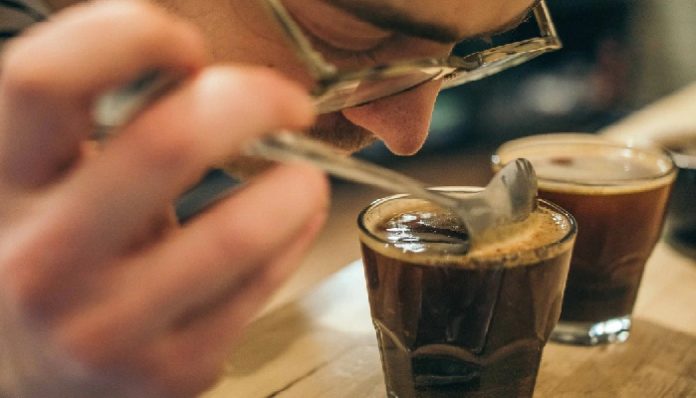
Imagine waking up one day, feeling fine, not noticing anything in particular. Until you start to brush your teeth, and the toothpaste tastes like…well, nothing. So you try smelling the toothpaste bottle, and then you realize you also can’t do that either. The loss of the senses of taste and smell has been a common symptom of COVID-19. However, not enough people have written at length or provided much visibility about their own experiences. And although I recognize how lucky I am to not have any other symptoms, I still feel like it’s valid for me to commiserate over the fact that I still haven’t recovered my sense of taste or smell after almost three weeks (smell comes and goes and is a remnant of aromas I used to be able to distinguish in a flash).
Losing the ability to smell (one of the most underrated senses), and even worse for me, the loss of taste feels like losing a part of myself. The process was abrupt and quick — as if a switch suddenly went off. There was no sort of indication that it was leaving except for maybe a quick flash of scent, but this happened when I had already realized that my taste left me. I lost my appetite, my pleasure of eating. I’ve been losing weight, and I can only imagine that others who’ve developed these symptoms and have had it for even longer might easily be prone to eating disorders.
Every night, I’d hope for the next morning to be the day when I’d be able to taste my gross morning breath. I didn’t even care what it was, as long as I could taste again.
For the first few days, I was depressed and cried while forcing myself to eat pasta that my family and I ordered from a restaurant. The scariest part of this is the uncertainty of this symptom. Of course, the first thing I did was Google, and yes, I resorted to believing the worst. I wasn’t feeling sick, so how could it possibly be the virus we have been so careful about? I read stories of people losing their senses for days, weeks, months. Would I be the lucky person who loses it permanently, as a 25-year-old? The anxiety loop would continue spiraling in my head. I kept imagining what air smelled like. I no longer could breathe in the soft silk of shampoo. Or the smell of detergent after my clothes have been washed. My world feels dull.
Losing the sense of taste has been absolutely devastating. I can look at any food, and be excited because it looks wonderful. But as soon as I start chewing it, I am eating purely for the pleasure of texture. Last night, I baked cookies and couldn’t taste the batter — the batter, one of my most guilty pleasures. It tasted sweet but other than that… Well, I don’t have any other word for it than, “Well, nothing” (also, because I couldn’t smell them while they were in the oven, they also turned out too browned and overbaked). Crackers taste like sawdust. Chips taste like salt. Rice is the funnest texture to munch on, and bread tastes sour, while peanut butter is hard to swallow.
The sense of smell is a link to memory.
I think about this a lot: The ones who are fortunate enough to regain their senses may sometimes have a distorted sense of what used to be such automatic, familiar perceptions, something that so many of us take for granted. I wanted to write this as a way to mourn my own prolonged loss (while I still hope for the possibility that my sense will come back).
Anosmia (the loss of the sense of smell) and ageusia (the loss of the sense of taste) aren’t something that can be cured with any sort of medicine or cure. So I’m just raising awareness to let those who are also suffering from this know that you are not alone. I also want to remind the world to be grateful for the senses every day. Be thankful for being truly able to feel something, both physically, but also metaphorically — through the nose, and at the tip of the tongue.
Featured image via Battlecreek Coffee Roasters on Unsplash


















